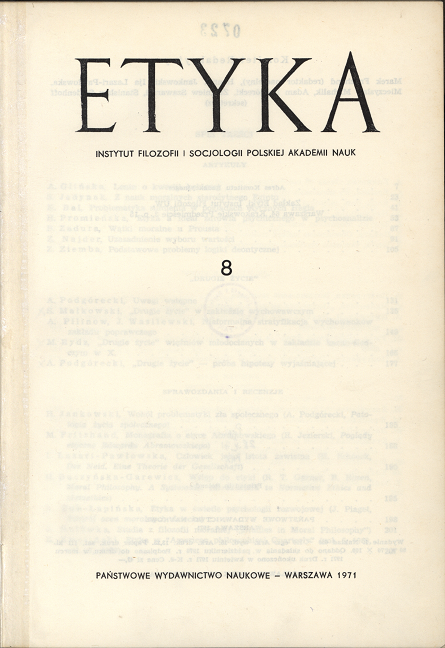Wątki moralne u Prousta
Abstrakt
The essay deals with moral problems in Proust’s A la recherche du temps perdu. The novel has been viewed by many as a survey of the ruling customs, as an outstanding psychological novel, as a study of human characters, and as a story of the decline of aristocracy. The description of facts has been noted in this way, but not the underlying idea. This essay shows Proust not only as an etologist (in this respect his importance is not controversial), but also as a moralist. The essay consists of three parts. The first one deals with Proust’s views connected with the theory of knowledge to be found in the novel. Special emphasis is put on the influence both of the atmosphere of his home and that of his time on the formation of Proust’s views, as his point of departure was the positivistic method as well as scientific and naturalistic approach to all events. Further, it should be stressed – and this has escaped many readers for a long time – that having applied his method Proust arrived at general conclusions which have proved to be in a sheer contradiction with this method. No writer of fiction before him has pointed out the importance of subjective factors in cognition better than he did. In defiance of positivism, Proust denies neither the existence of the essence of things nor of qualitative differences. Considerations relating to Proust’s analysis of the phenomenon of remembering and of different kinds of memory (with particular stress on analogous memory) show how important they were for fixing his views on the insufficiency and inadequacy of intellectual cognition as well as on discovering its falsifications, simplifications and utilitarian character. Both the world of common experience and common sense and that of science are worlds of delusion. These conceptions show a striking coincidence with those of Bergson.Pobrania
Opublikowane
Numer
Dział
Licencja
Prace publikowane w czasopiśmie ETYKA udostępniane są na podstawie licencji Creative Commons Attribution No Derivatives 4.0 International (CC BY-ND), tj. uznanie autorstwa-Bez utworów zależnych. Oznacza to, że Autorki i Autorzy zachowują autorskie prawa majątkowe do utworów i wyrażają zgodę, aby ich prace były zgodnie z prawem ponownie wykorzystywane do dowolnych celów, także komercyjnych, za wyjątkiem tworzenia utworów zależnych (dzieł pochodnych), bez konieczności uzyskania uprzedniej zgody ze Autora lub wydawcy. Artykuły mogą być pobierane, drukowane, powielane i rozpowszechniane z zastrzeżeniem konieczności poprawnego oznaczenia autorstwa oraz oryginalnego miejsca publikacji. Autorzy zachowują prawa autorskie do wspomnianych utworów bez innych ograniczeń.



